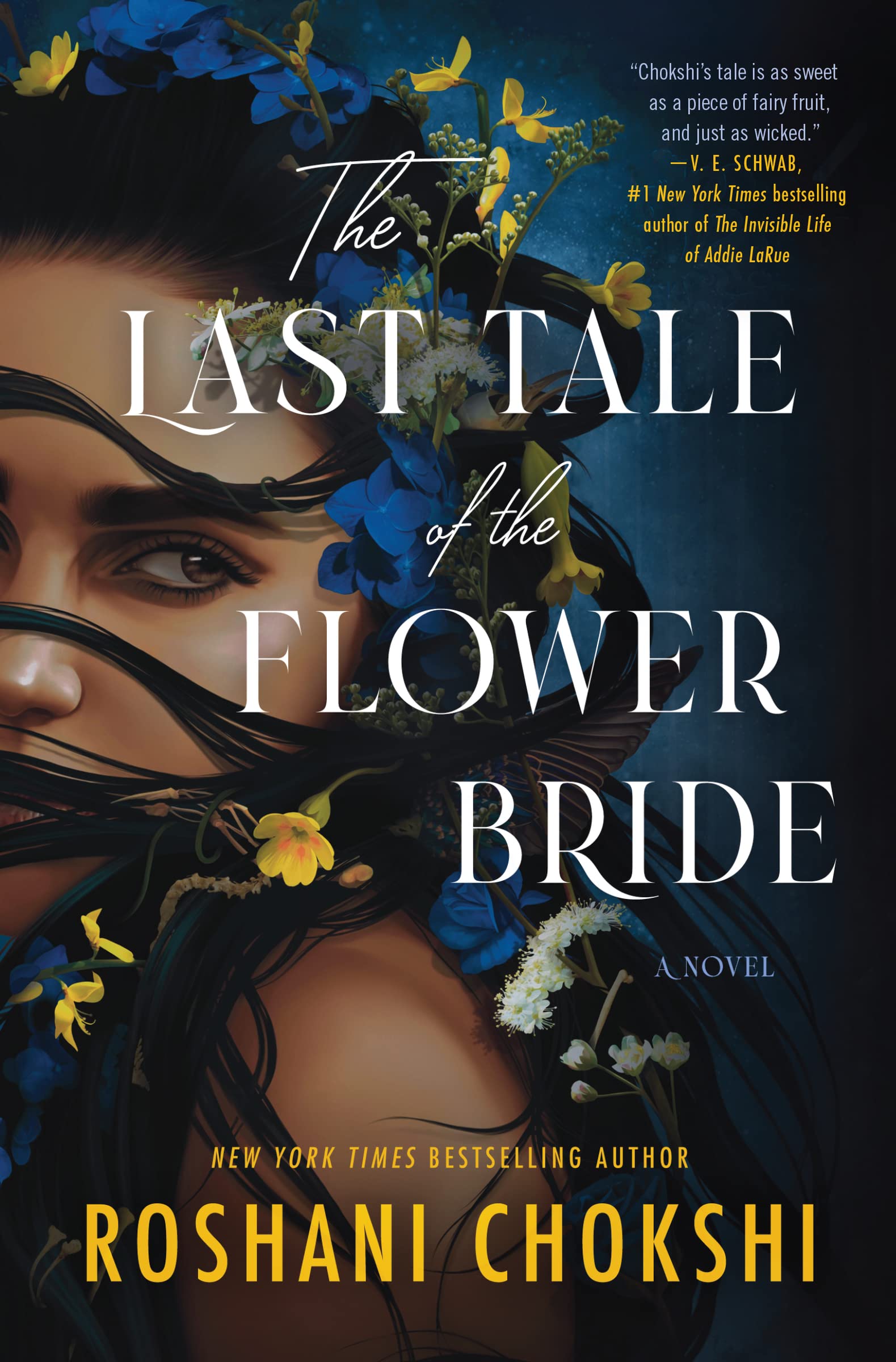Author: Roshani Chokshi
Published: 2023
Target Audience: Adults (Appropriate ages 16+)
You warned me that knowing your secret would destroy us.
Once, a man who studied fairy tales met a mysterious woman called Indigo Maxwell-Casteñada. They fell in love and decided to marry, but Indigo had one condition: do not ask about her past. Do not look, do not pry. The man agreed, and they were wed.
But when a call comes that Indigo's estranged aunt is dying, and the couple must return to Indigo's childhood home, the bridegroom's resolve weakens. For there are secrets lying within the dilapidated mansion's extravagant halls and sprawling gardens, begging to be uncovered. Hints of a second girl called Azure, Indigo's childhood friend who disappeared long ago. But Azure's story will not stay silenced.
As the house slowly reveals his wife's secrets, the bridegroom will be forced to choose between fantasy and reality, even if doing so may destroy their marriage - or their very lives.
Excerpt:
If you combed through enough fairy tales, untangled their roots, and shook out their branches, you would find that they are infested with oaths. Oaths are brittle things, not unlike an egg. Though they go by different names depending on the myth - troths and geis, vows and tynged - there is one thing they all share: they must be broken for there to be a story. Only a shattered promise yields a rich, glittering yolk of a tale.
I could feel the promise I had kept for so long, tipping back and forth on the ledge of my own conviction. Promise me you will not pry. Can you live with that?
I am trying, I wanted to say. Truly I am.
But when I blinked, I saw [aunt's] glowing teeth as she laughed: You say she loves you, but what is she anyway?
What was Indigo?
Review:
Published in 2023, 'The Last Tale of the Flower Bride' is an enthralling gothic novel by American author Roshani Chokshi about love, lies, and the stories people tell themselves to survive. It is an atmospheric book, rich in literary description, and unfolds through alternating perspectives of the bridegroom in the present and Azure in the past. By exploring their individual relationships with Indigo over the years, 'The Last Tale of the Flower Bride' presents a fascinating examination of love as a double-edged sword - one with acceptance and belonging on one side, and codependency and the fear of abandonment on the other. This motif of duality continues throughout the novel, branching out to explore concepts of poverty vs decadence, growth vs stagnation, sacrifice vs salvation, real life vs an Otherworld, and more. Chokshi skillfully builds upon this dual theming through the incorporation of myths and fables to weave a captivating mystery that asks, what happened to Azure? And what will be left when the truth comes out?
A distinctive feature of 'The Last Tale of the Flower Bride' is its use of ornate language and intricate references to myths and folk stories. This infuses a sense of mystique and intrigue in the narrative, and blurs the lines between plot events and how the characters perceive them. Indigo and the bridegroom use a variety allegories to express their existence and relationship; communicating through exchanging gifts, playing games, and telling stories of oaths and tests, the monstrous and beautiful, the fragile and divine. Though beautifully written, this proxy characterisation may hamper an audience's interest in Indigo and the bridegroom as tangible, engaging characters, instead viewing them as distant, cobbled-together impressions of humans with minimal relatable qualities. This has the potential knock-on effect of undermining the narrative stakes. If readers are not invested in Indigo or the bridegroom, why should we care if their marriage fails? Worse, after promising to not ask about Indigo's past, the bridegroom almost immediately indicates a likelihood to break his vow. His blatant intention to break her trust may paint the bridegroom as an unreliable liar, and may weaken the audience's attachment to the character. These detractions are compounded by the novel's intermittent, excessively-florid prose, which can be occasionally distracting and interrupt story progression. Thankfully, once the couple arrives at Indigo's childhood home, and the mystery of Azure is introduced, these issues are quickly remedied. Azure's disappearance serves as a centralising focus that drives the plot direction and combines independent character conflicts into a cohesive, enthralling book that is hard to put down.
'The Last Tale of the Flower Bride' is a spellbinding story of those who desperately need the fantastical to be real, to render an otherwise unbearable reality into a tolerable fairy tale. I highly recommend checking it out.
